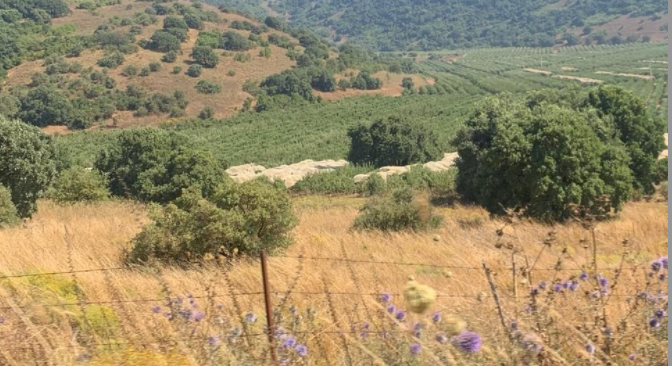Trees, love and humanity come together on Tu B’shvat
CHOICE: Jews have never been required to plant trees on a specific day, but we choose to anyway. Why?
January 17, 2022
This Jan. 17, in the dead of winter, we once again find ourselves in Tu B’shvat, a rabbinic holiday also known as Rosh Hashanah haIlanot, or “New Year of the Trees.”
Tu B’shvat has evolved to be celebrated as a sort of Israeli Arbor Day. It’s become customary to plant trees on Tu B’shvat, or to donate to other people doing so. Organizations like the Jewish National Fund offer opportunities to sponsor a tree planting in Israel in honor of the holiday. It often pushes the concept of the “revival of nature,” which is very much in line with the Jewish concept of tikkun olam – repairing the world – especially right now.
However, Talmudically speaking, Tu B’shvat was never intended to be the celebration of nature it is today. The date was originally set as a way to group trees by age, in order to better fulfill certain agricultural halachot. For example, the איסור ערלה commandment forbids eating fruit produced by a tree in its first three years. Rather than keep track of the day each tree was planted, we understand that a tree’s fruit can be picked after its third Tu B’shvat. The holiday is just a catchall birthday to make agricultural laws easier to follow.
In fact, the concept of Tu B’shvat as a day dedicated to helping nature is rather recent; the first recorded instance of the custom is 1890, when Rabbi Ze’ev Yavetz took his students out to plant trees in Zichron Yaakov, Israel (then Palestine). It wasn’t until 1908 that it was picked up as a custom by the Jewish Teachers Union. In the last century, all on our own, without halachic or rabbinic officiation, the Jewish people chose to turn a convenient agricultural date into a significant holiday for nature conservation efforts.
Sometimes in this world of large cityscapes and advanced technology, we can internalize that the world is cruel and cold, and in doing so we forget how much love is here. We were never required to plant trees on a specific day, but we chose to anyway, because we – people, humanity – care about the immense blessing of nature. Grass grows out of the cracks in the cement, gardens are well-tended to. There is so much more good in this world than we might think.


















